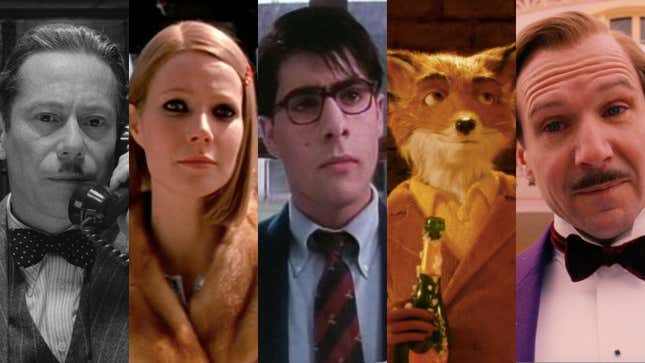
It’s easy to accuse Wes Anderson of making the same movie over and over again, endlessly remixing familiar elements in slightly different ratios: symmetrical compositions, absent or inadequate fathers, carefully labeled minutiae, frustrated artists, detail-packed set design, and deadpan dialogue often prefaced with “anyway” or postfaced with “by the way.” But if his movies are so similar, why is there such surprising diversity of opinion about what constitutes his best (or worst) work? Some prefer the more (relatively) stripped-down style of his earlier films. Others marvel at the movies with more intricate, elaborate world-building. Still others prefer his more emotionally intimate work. And there are those who feel that his stop-motion projects are the purest expression of his inimitable style. Yes, technically that style can be imitated, most often for parodies of his various obsessions, tics, and hang-ups. But his voice is too singular to inspire the usual rip-offs and poor man’s imitations. (If a filmmaker is “doing” Wes Anderson, they must know they’ll be called out immediately.)
Though some might accuse Anderson’s world of being hermetically sealed, it’s also instantly recognizable, deceptively emotional, and colorfully eye-filling at a time when big-budget blockbusters will spare no expense to look like they were shot inside of a cement mixer. So how better to grapple with the stealthy variety of his 10 movies so far than a fussily composed and ordered ranking? (For the full effect, imagine each entry carefully typeset in Futura or Archer.) Though the following list has been written up by a single writer, it does not express a lone opinion. Rather, it reflects a rough (and highly unscientific) aggregate of opinions of The A.V. Club film department as a whole, taking into account reviews past and present, showings on retrospective best-of lists, and various ineffable whims. Feel free to start your own Rushmore Academy Debate Club in the comments.